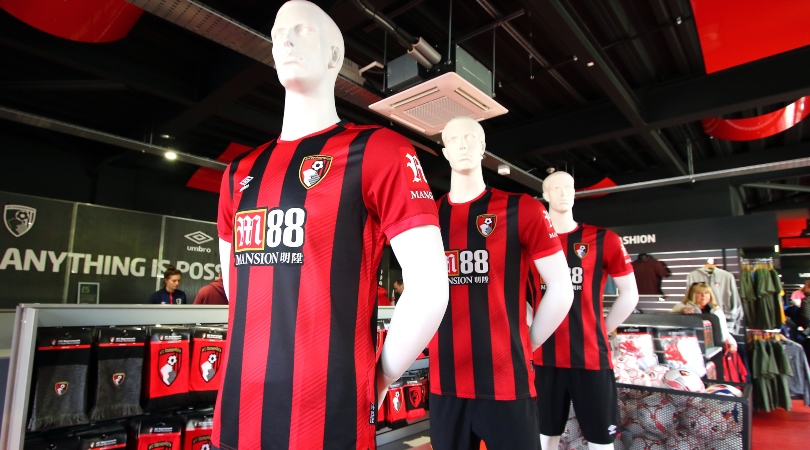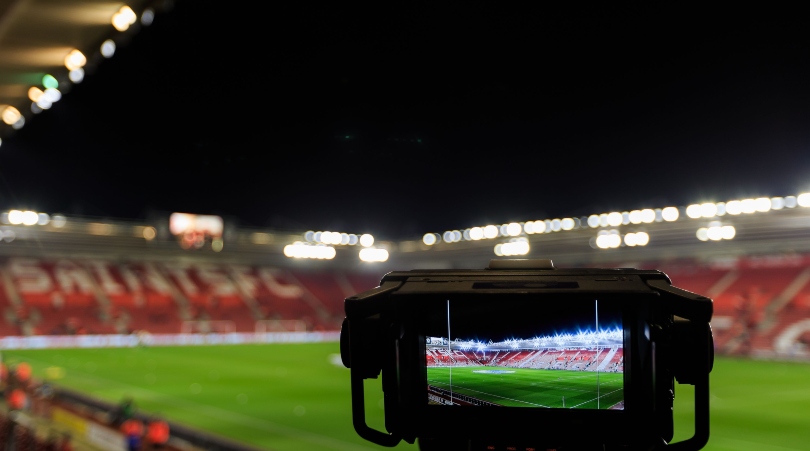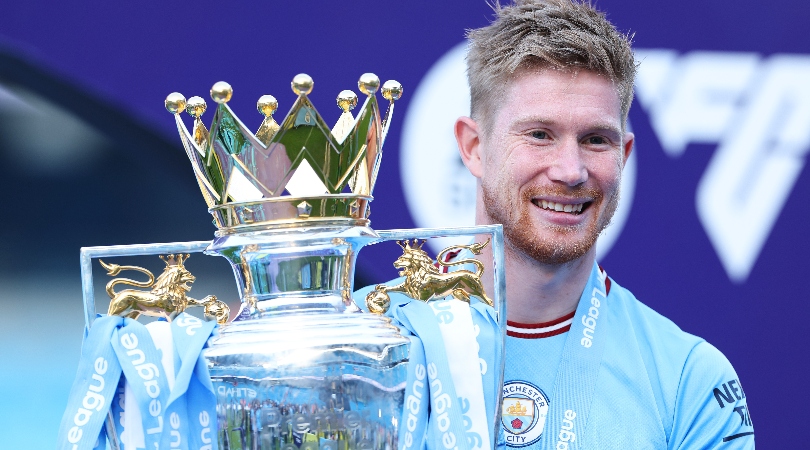How will clubs respond to new Premier League streaming options?
Giving fans more, cheaper and better options to watch football at home could deter them from attending games. But only if clubs carry on as though nothing has changed

Yesterday, this column approached Amazon’s entry into the Premier League broadcasting world from the perspective of the match-going supporter. It was a bleak affair and not without cause, but it needn't be a one-sided discussion; there are potential positives to this change and it could, in time, breed healthy developments in the game.
Primarily, those are likely to be cosmetic and related to the way football is presented. Whenever a new broadcaster enters the market, there’s always the hope of a different formula being applied. So far that hasn’t been the case. Amazon has actually put together as unimaginative a list of pundits as it was possible to construct, but their product remains in its infancy and, given the various issues relating to delivery, a reluctance to take risks elsewhere is understandable.
But what of the future? Their acquisition of further rights packages might eventually deliver the kind of supporting programming that the Premier League has always been without. Compared with other competitions of equivalent stature - the NFL, NBA, MLB etc - the provision of content beyond the live action remains token. Amazon, who have a fine record for producing compelling documentary series and taking viewers beneath sport's surface, would - as an equal partner to Sky Sports and BT Sport - be in a position to address that shortcoming.
It's possibly too optimistic, particularly given the steps already taken down the ‘jobs for the boys’ path, but in time and with the necessary confidence to be different, Amazon would at least have the opportunity to lead a cultural departure.
While you're here, why not take advantage of our brilliant subscribers' offer? Get the game's greatest stories and best journalism direct to your door for only £9.50 every quarter. Cheers!
Monday’s column dedicated most of its energy to wondering what the effect might be on match attendance. It reasoned that with the increased cost of tickets and soaring price of travel in the UK, a digital season-ticket for a fraction of the cost would potentially threaten crowd numbers and atmosphere.
Clubs are no longer dependent on gate revenue. Practically, with television and commercial revenue being at the levels they are, Premier League matches could be played in empty stadiums with no great detriment to a team's ambition. What ultimately keeps ticket cost high is not necessity, then, but the enabling nature of demand and also - unfortunately - the clubs’ recognition that fans wanting to watch their side have little choice but to be exploited.
Get FourFourTwo Newsletter
The best features, fun and footballing quizzes, straight to your inbox every week.
Given the means and opportunity, a true supporter would almost always prefer to be in the stadium. That will never stop beig true. But there is always a tipping point – a cost that the fan won’t meet, a journey that they feel unable to make, an inconvenience that they no longer want to bear. If streaming takes football in the expected direction, to a situation where it’s possible to watch every game of the season on demand, then the fan would likely reach that juncture much earlier and be much more willing to make compromises around their attendance.
Some fans aren’t for moving. They don’t like television and if they can’t be at the game, they’d rather not watch at all. Those people will continue to meet whatever costs are passed on to them out of habit. But for others, the convenience of being able to stay at home and not miss a second of any game might alter their perspective and weaken their resolve.
And how would the clubs respond? They appear blissfully untroubled by the plight of the fan, but they surely recognise the value of filling their stadiums. Even if just for the value of presenting a positive and saleable image on television and deepening the indoctrination of those sitting in the seats. Ultimately, fan who buys a ticket is probably more likely to buy a new replica shirt every season. Or a scarf, or a DVD, or a gnome dressed in the right colours. Or even to place a bet with an approved bookmaker.
Because it would be in their interests, it's conceivable that they'd offer a compromise. Possibly with reduced ticket prices to tempt lapsed fans off their sofas and back into the grounds.
Yes, it’s all very tenuous. These are 'might', 'could', and 'possibly' scenarios which are all years down the line and highly theoretically. But even if it's slightly disengenuous and plays dumb to football's remarkable ability to find itself on the profitable side of any deal, it's valid to wonder whether the advent of the streaming era will actually strengthen the hand of the supporter. Or at least appear to.
NOW READ...
HOW TOWatch Amazon Prime Premier League matches for FREE
QUIZ Can you name the 50 most recent Premier League managers?
GUIDE Premier League live stream best VPN: how to watch every game from anywhere in the world
Seb Stafford-Bloor is a football writer at Tifo Football and member of the Football Writers' Association. He was formerly a regularly columnist for the FourFourTwo website, covering all aspects of the game, including tactical analysis, reaction pieces, longer-term trends and critiquing the increasingly shady business of football's financial side and authorities' decision-making.

